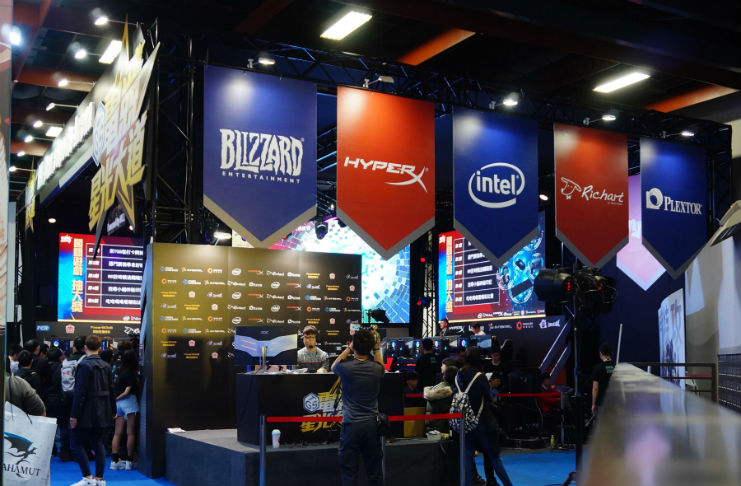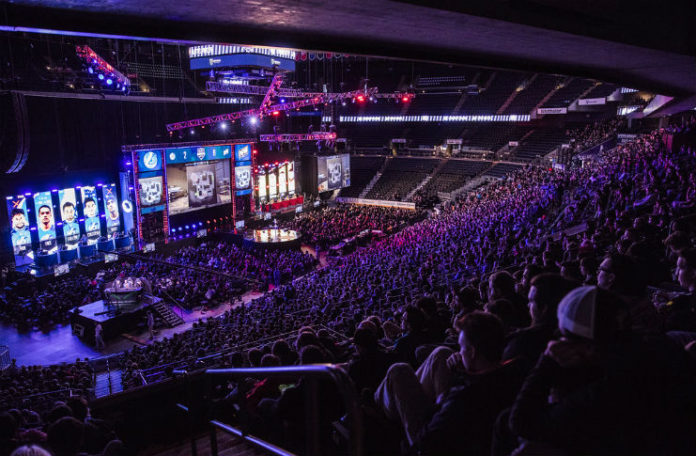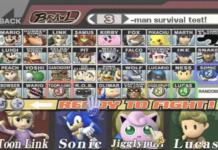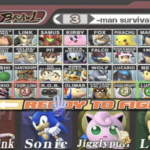Can video games get kids through college? Could it even be a career opportunity?
It’s beginning to look like that’s the case.
With over 100 college esports programs in the United States, competitive gaming has quickly made its mark in the collegiate scene. In Canada, Saints Gaming at St. Clair College became the first Canadian esports varsity team, and their Saints Gaming Live events have attracted some of the top professionals in various games. Even developers have taken notice, with companies such as Riot Games (creators of League of Legends) sponsoring official college esports tournaments.
School esports programs are growing fast. The question is: why?
Jennifer Frank, the Student Director of Varsity Esports at Miami University of Ohio, knows the answer. She has been thoroughly involved in competitive gaming for years; her work in the scene has led her to doing media production for events such as EVO, and working alongside notable figures in video games such as Markiplier and Gootecks, among many others. She has learned just how great the industry is and how much potential it has; and most importantly, how crucial it is to spread the word.

“Parents have no idea what the thrill is. What I tell them is this: It’s just like any other varsity program, but focused specifically on their personal talents. Our focus is on fueling the player’s passion for esports and preparing them for a future in it.” Frank told ggn00b via email. While the early parts of the year may be quiet for the program, the spring is when things kick into high gear and students really get to experience competition.
“Tournament days can be non-stop, [with] some teams playing up to seven or eight games in a single day.” Frank explains. “Our intern team is just as busy in the spring as well, preparing streams, graphics, posts, and more at the same time our teams are going. We also bring a Student Director and a small media team with us to every tournament, so they’re working double.”
“Lastly, we have recruitment days every Friday that some interns and players participate in, and that can take up to half the day. It’s a true and serious commitment.”
The grind is real for everybody involved and Frank acknowledges that many college players aren’t necessarily looking to play professionally.
“What they are looking for is a chance to get excited about something with a group of people who love it the same way they do and want to better themselves every day.”

Indeed, in professional gaming, the top players make their mark early: MKLeo won his first Super Smash Bros. for Wii U major tournament at age 15; Punk dominated an entire season of Street Fighter V while turning 18. Bugha was only 16 years old when he became the Fortnite world champion.
But these programs are about more than just the game; they offer students and players a myriad of skills through these programs in terms of networking, event production, and brand management. Frank describes how, on top of scholarship opportunities, the Miami University of Ohio program now offers an Undergraduate Certificate in Esports Management; and that an Esports Management Graduate Degree may not be far off.
“We have an alumnus named Niko Stirilis who does Event Management for AllMid tournaments and events, and his sister, Stelanie, was once a student director and has gone on to work for Blizzard and Halo. We are at a midpoint in our program’s development where we are starting to see teams and companies reach out to us for partnerships and interns” Frank explains. The opportunities for these college programs to work with developers, sponsors and esports associations only continues to grow.

But perhaps the most important aspect of these college programs is how they prepare students for an industry that desperately needs their help. The viewership and money in esports is becoming undeniable, yet there is still cases of major teams having to close up shop; Andrey “Reynad” Yanyuk, founder of TempoStorm, described how many esports teams have essentially no value despite acquiring talent and resources because of clueless investors.
Frank believes that the new generation of aspiring esports enthusiasts will be the key to fixing these problems and pushing the industry further, and that college esports programs will help prepare them for the journey.
“Esports companies everywhere are starved for people who understand the makings of the game and its players, and anyone over the age of 30 don’t know the game, while people beneath the age of 18 don’t have the experience.” says Frank. “People between the ages of 18 and 25 are the prime target for new employees in this career path, because they not only grew up alongside esports, but also had the education and experience to go with it.”
The growth and support of these college esports programs only further legitimizes competitive gaming in the mainstream, and offers an exciting look at one of the fastest-growing industries in America. Frank points out how esports was barely marketable ten years ago, yet viewership for the League of Legends World Finals could compete with SuperBowl numbers; a testament to the growing appeal of competitive video games.
“Believe me, if you’re young and want to work in games, esports is the place to look.”











